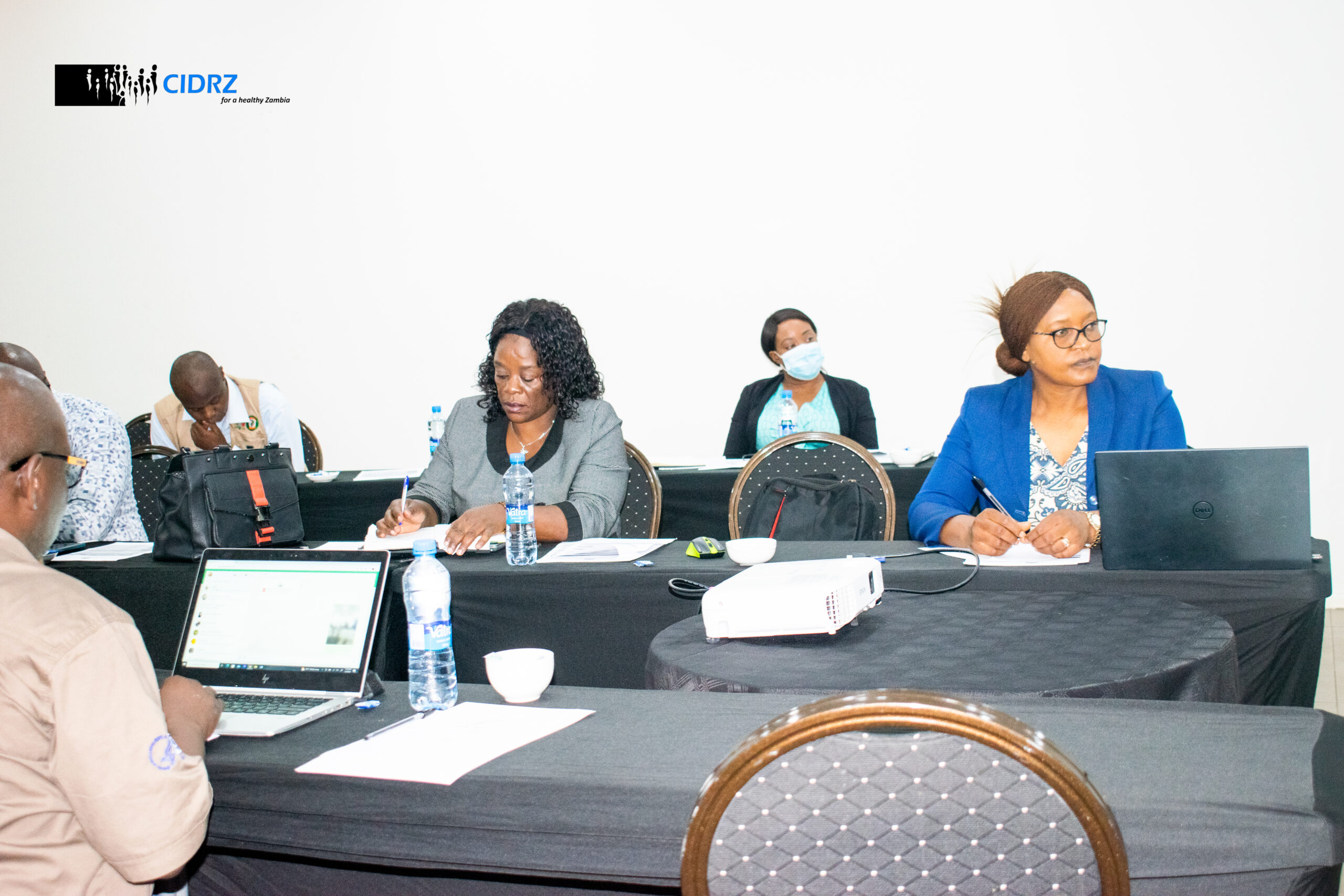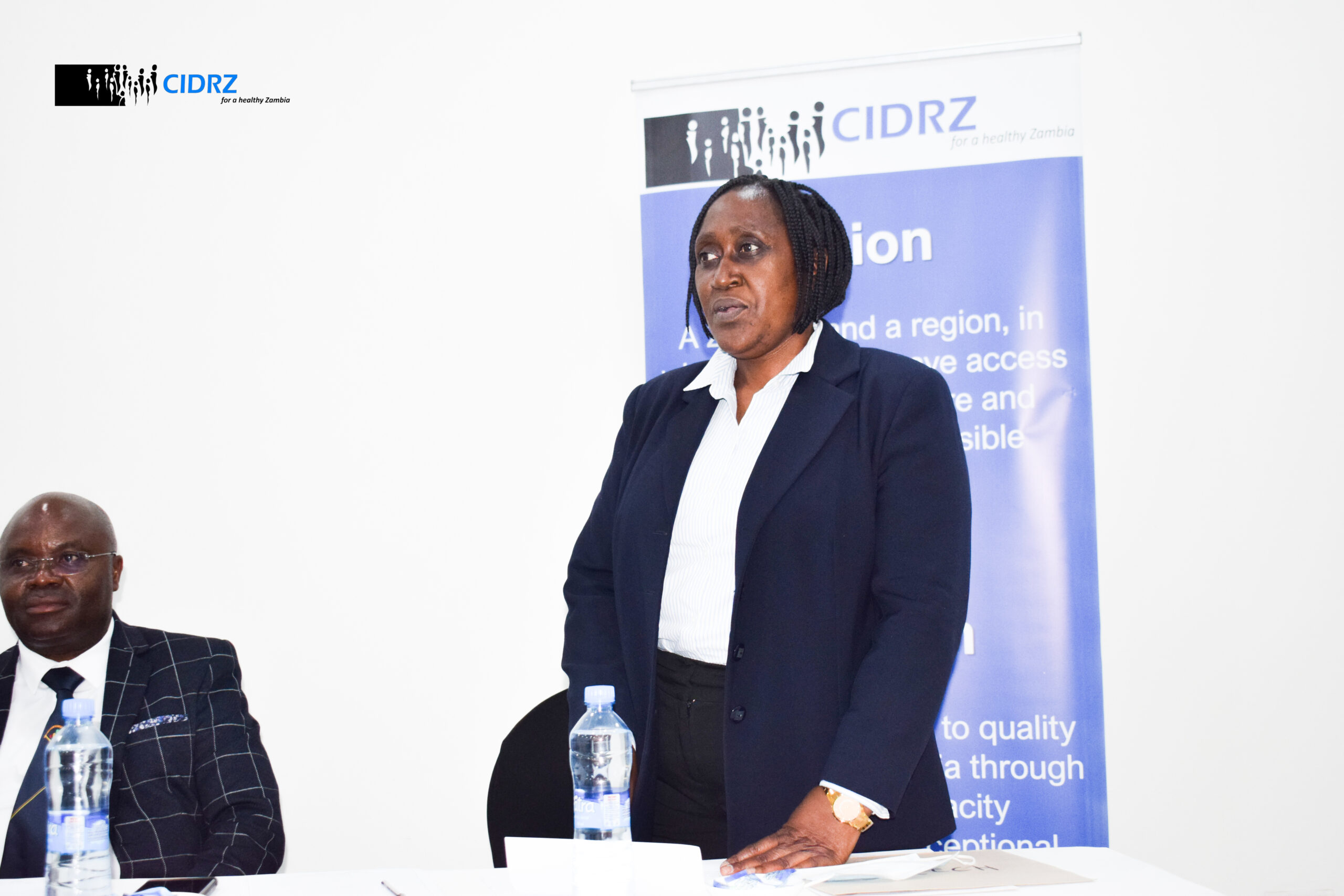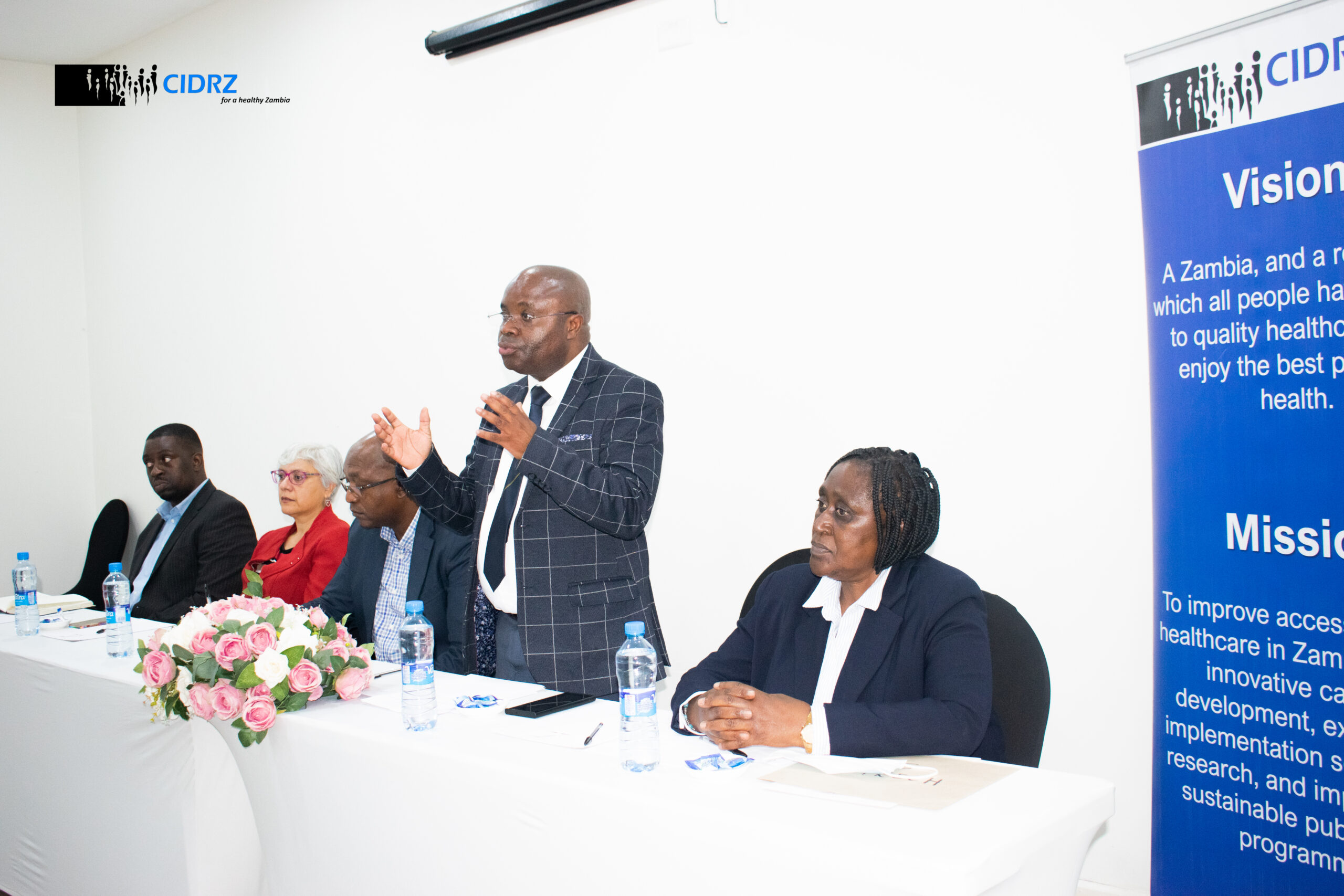Person Centered Care (PCC) to Boost Health Care Services to Recommended Standard Treatment Guidelines.
The Centre for Infectious Disease Research in Zambia (CIDRZ) participated in the Directorates of Quality and Performance Improvement Stakeholders Meeting organized by the Ministry of Health (MOH) to discuss the integration of performance improvement and quality improvement into the Person-Centered Care (PCC) approaches in the delivery of quality health services.
The meeting provided updates on the progress made towards the implementation of the MOH PI/QI agenda in Zambia. It focused on developing a road map for the PI/QI work plan and the integration of PCC activities into routine care as well as aligning the PI/QI activities with partner commitments.
In a speech by the Permanent Secretary (PS)- Technical Services at MOH, Professor Lackson Kasonka, read by Dr. Alex Makupe, Director of Clinical Care and Diagnostic Services at MOH on his behalf, Dr Kasonka noted that while tremendous progress has been made indicators still show that there is a gap between the health care provided by health facilities and the recommended standard treatment guidelines, which leads to poor patient outcomes.
The PS recognized the role of CIDRZ: “CIDRZ has supported the strengthening of Zambia’s health care system, including the Zambia Prison Services, through scaling-up of elimination of Mother-To-Child HIV transmission (PMTCT) including adult and pediatric Antiretroviral Therapy (ART).”
He added that the World Health Organization (WHO) has endorsed PCC as a tool to improve client experience and health outcomes. Since then, PCC principles have been adopted across the world. Against this background, CIDRZ is implementing the strengthening of quality improvement through the PCC approaches (SQI-PCC) project.
CIDRZ has been implementing the PCC curriculum and mentorship in 24 facilities across Lusaka Province. The study has found four core areas that have improved since the implementation of PCC:
- Provider and patient-centred training and coaching have resulted in engaged and changed provider perspectives and behaviour.
- Improved PCC knowledge and skills have resulted in active teamwork between healthcare workers catalysed by facility-level leadership buy-in.
- Changes in provider behaviours have resulted in improved reported patient experiences.
- Improvement in client satisfaction feedback from patients, including verbal praise and appreciation for providers’ work.
Meanwhile, MOH Director PI/QI, Dr Jelita Chinyonga, explained that among the reforms the MOH has implemented to ensure the delivery of quality care services was the establishment of the two directorates which are Performance Improvement and Quality Assurance, which are now units under the Directorate of Clinical Care and Diagnostic Services.
Dr Jelita further explained that over the past months, CIDRZ and MOH performance improvement and quality improvement departments have established a working partnership whose aim is to;
- Assess the current landscape of the national QI/PI agenda to understand its capacities and opportunities to integrate PCC to strengthen the PI/QI systems in Zambia.
- Engage different stakeholders to develop a road map for strengthening PI/QI programs and integrating promising activities including the recently completed PCC study, and
- Provide a combination of technical assistance, policy development/advocacy and engagements to the facility, national, regional, and global quality improvement efforts.












Legal Disclaimer:
EIN Presswire provides this news content "as is" without warranty of any kind. We do not accept any responsibility or liability for the accuracy, content, images, videos, licenses, completeness, legality, or reliability of the information contained in this article. If you have any complaints or copyright issues related to this article, kindly contact the author above.
